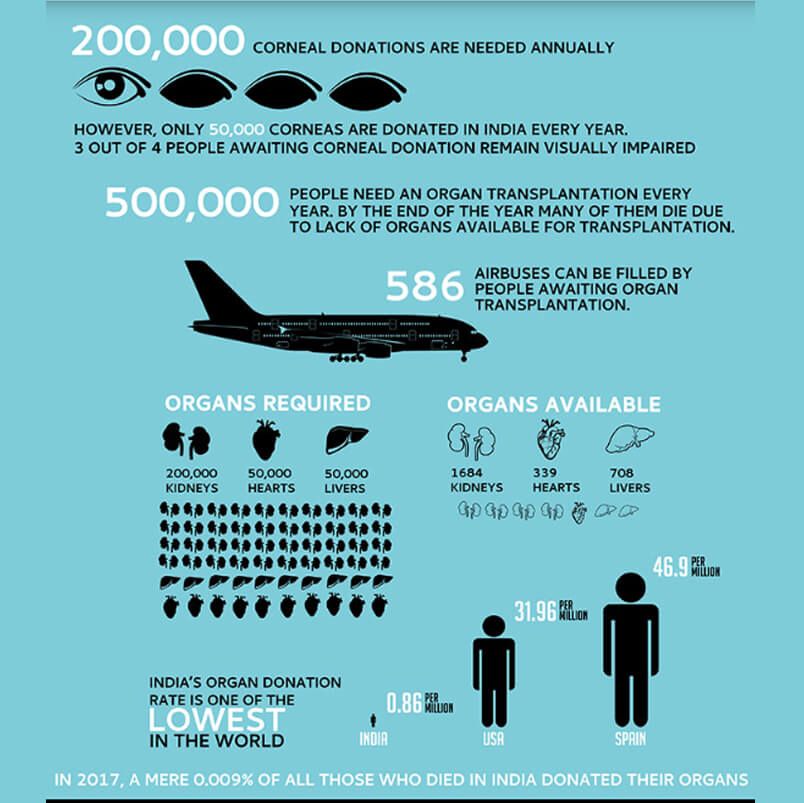Every year, on August 13, World Organ Donation Day is an important forum for spreading awareness of the potential life-saving benefits of organ donation. It's a day to debunk misconceptions, promote conversation, and motivate people to donate their organs. Donating an organ is the act of allowing one person, with their agreement, to have their organs legally removed and transplanted into another person, where the donor can be alive or deceased and a close family.
More people have died from organ failure in the past and during the epidemic, making it one of the most common morbidities. An abundance of needy patients die as a result of organ shortages. Donating hearts, kidneys, pancreas, lungs, livers, intestines, hands, faces, tissues, bone marrow, and stem cells can save up to eight lives through one endeavour.
This year, 2024, the slogan for World Organ Donation Day is "Be the Reason for Someone's Smile Today!". This catchphrase encourages people to think about becoming organ donors and to increase public awareness of the vital need for organ donation. Since one deceased donor may save up to eight lives, deceased donors are essential to reducing the world's rapidly increasing organ need, particularly in poorer nations like India. the slogan for World Organ Donation Day is "Be the Reason for Someone's Smile Today!".
According to the Times of India, the annual number of cadaver (or deceased) donors in India crossed the four-digit mark in 2023. According to the National Organ & Tissue Transplant Organisation (NOTTO), there were 1,028 deceased donors in 2023 as against 941 in 2022. Transplantation needs are significantly more in demand than they are in supply. Many lives are on the line as they await a miracle—a donated organ—to save them. Donated organs have the potential to save many lives and provide patients with terminal conditions hope and a second opportunity at life.

The stigma associated with organ donation is one of the main obstacles to its promotion. Many times, individuals are too afraid or have misconceptions about this altruistic deed to contemplate it. Addressing these issues and educating the public about the reality of organ donation is imperative.
Myth: It hurts to donate an organ
Fact: Donation of organs happens after death, with the removal of life-sustaining assistance.
Myth: If a possible donor is saved, doctors won't make as much of an effort.
Fact: Medical personnel put saving lives first and will stop at nothing to achieve this goal.
Myth: Donating an organ goes against one's religious convictions.
Fact: Donating an organ is seen as a compassionate gesture by the majority of major faiths.
Ways in Which You Can Change ThingsSign up to donate organs: Becoming registered as an organ donor is the easiest but most significant step. To make sure your desires are followed, let your family know about your choice.
Teach others: Raise awareness among your friends, family, and neighbours about the significance of organ donation.
Encourage organ donation organisations: Contribute to charities that help transplant patients and organ donation advocacy groups who work nonstop.
You can change people's lives by donating your organs. Your choice to give life as a gift demonstrates your humanity and compassion. Together, let's make it so that everyone in need of an organ transplant may obtain one.
